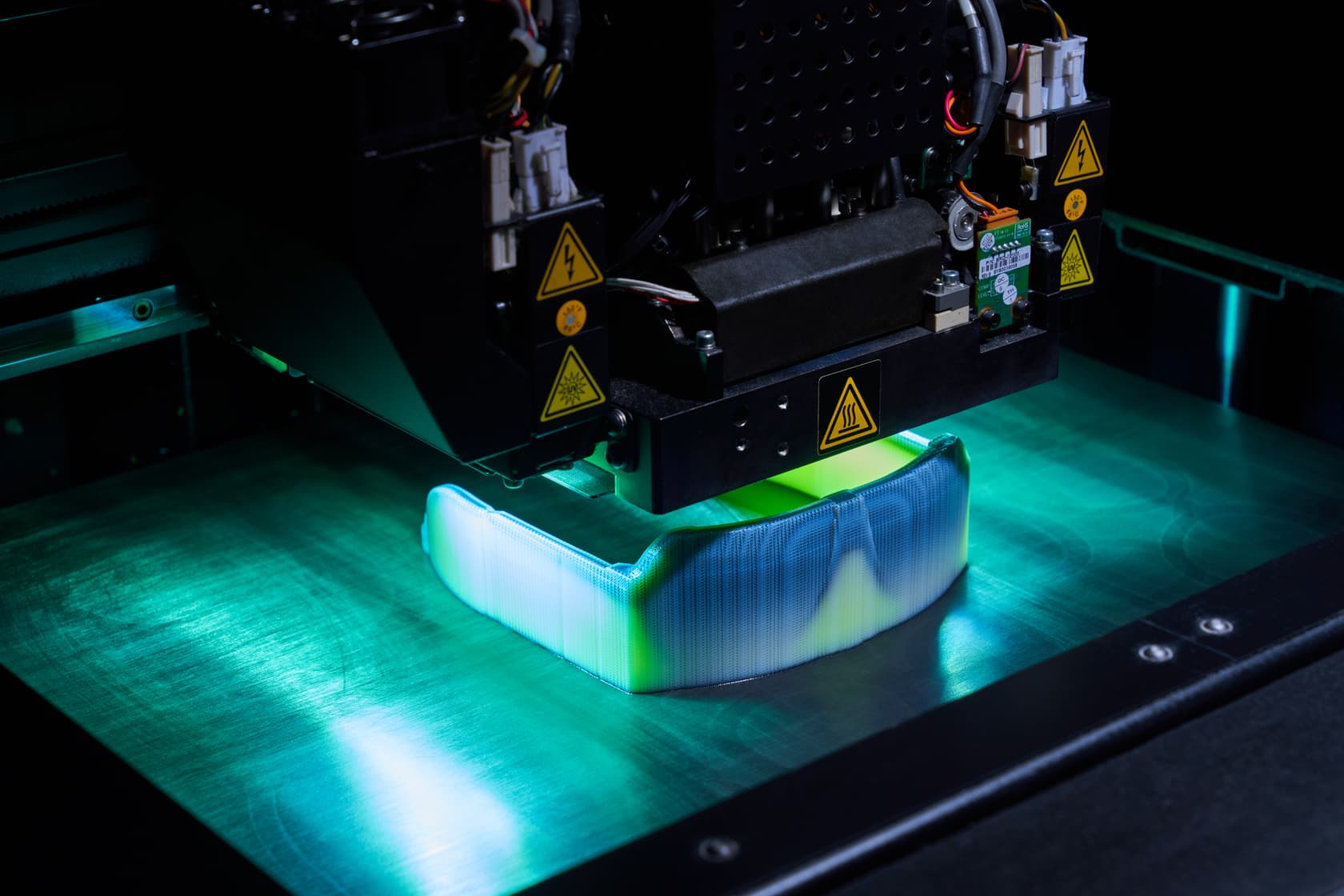A forward-looking vision
Product and process innovation
At our Global Innovation Centre, we analyse macro-trends, search for new materials and develop innovative technologies; here, through industrial engineering, specific solutions are tested to create high-quality products. We are committed to researching and developing new cutting-edge lens and frame solutions and treatments that help people improve their vision.
Our Product Certification Lab works with external certification organisations on new products and materials. In collaboration with universities, research centres, qualified suppliers, customers, industry experts and associations, we always search for innovative solutions.
Our priority is the quality of our products: our Corporate Lab plays a key role in making us a global leader in terms of quality and innovation thanks to the close collaboration with our research, innovation and product development departments.
Because we believe that ideas and skills, if shared, boost the innovation process:
We test the physiological compatibility of each pair of glasses: no risk of allergies
We test the fit and stability over time of each pair of glasses: comfort as a mission
We test the optical quality and strength of the lenses in each pair of glasses: the pleasure of seeing properly.
Materials
We promote sustainable solutions and the use of green materials such as recyclable and bio-based polymers to make high-quality products that protect people’s eyesight while reducing the use of new resources. Thanks to a pioneering partnership with Aquafil, we have introduced a unique plastic material, ECONYL® regenerated nylon, never before used in industrial eyewear production. This is one of the tangible signs of our commitment to sustainability strategies. We use bio-based plastics, i.e. plastics partially derived from renewable resources such as castor oil - resulting in less dependence on petroleum - and materials with a low content of environmentally harmful chemicals.
Digital
At our Italian production sites, Industry 4.0 projects are up and running in collaboration with two start-ups: Azzurro Digitale, which has supported us in digitalising factory reporting and quality management; and I Consulting for the digitalisation of planning, logistics and reporting.
Digital Transformation
We regularly invest in and launch digital initiatives and projects, since this is one of the key objectives of our Group Business Plan 2020-2024.
Our sustainable supply chain
We carefully select our suppliers, assessing their environmental and social choices, with the aim of ensuring reliability and sustainability throughout the supply chain. The Corporate Responsible Sourcing Supplier Manual allows us to manage our suppliers and industrial partners responsibly, making sure that they comply with international standards, share Safilo’s values and promote the application of high standards. Regular supplier audits allow us to check their certifications and their ability to reduce their environmental impact.
Figures
Supplier assessment and selection process
Assessment: each supplier of direct material might be required to undergo an audit. Scope, timing and extension of the audit is determined annually based on a risk grade assigned to each supplier based on evaluation elements such as the country, activities done, purchased volume, contract size and, where applicable, the compliance level identified in any prior audit. The scope of assessment is grounded in applicable laws and regulations (including but not limited to laws related to labour practice, human rights, health and safety, environmental responsibility, anti-corruption, safety and quality of goods and services) in the countries where the supplier is located. The assessment process consists of an initial full on-site audit and, where necessary, of a follow-up audit, which is a re-assessment carried out as a shortened version of the full audit process. The follow-up audit aims to identify whether the concerns of the initial assessment have been overcome or have become more serious. Timing of the follow-up audit is determined by the types of issues found and is carried out in line with the due dates agreed for implementing corrective actions.
In case the supplier has a low level of criticality related to the country in which it operates, activities, business volume etc. Safilo might consider requesting the completion of a Self- Assessment Questionnaire (SAQ) instead of proceeding with an on-site audit.
